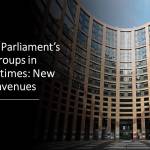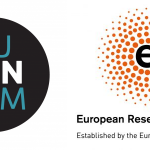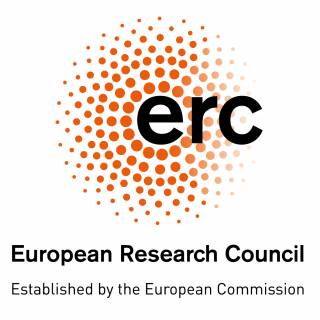
The first in the series of EUGenDem workshop sessions on ‘European Parliament’s political groups in turbulent times: New research avenues‘ took place on 14 December 2020.
Democracy within the European Union (EU) and thus the legitimacy of the EU itself, constitute permanent concerns for decision-makers, and indeed, academics. Against this background, the only directly elected EU institution, the EP, justly becomes a focal point of public and scholarly attention as the key democratic supranational actor. This workshop presents some cutting edge research on EP’s political groups examining in depth supranational democracy, its core actor, and democratic practices. The workshop engages with the internal democratic practices of the political groups in terms of policy formation and gender equality, as well as with the methods of studying these practices.
Chair: Petra Ahrens, Tampere University, Finland
Speakers:
Johanna Kantola, Tampere University, Finland: Gender and democracy in European Parliament’s party group practices
Anna Elomäki, Valentine Berthet, and Barbara Gaweda, Tampere University, Finland: Political dynamics, power struggles, and intra-group policy formation in the European Parliament
Cherry Miller, Tampere University, Finland: ‘Ethno, ethno, what?’ How Parliamentary Ethnography can help us to better understand Parliament’s Political Groups
Time: December 14th 2020, 15:00-16:30 (EET)
The full program of the EUGenDem workshop series can be found here.
Abstracts:
Gender and democracy in European Parliament’s party group practices
Johanna Kantola
Despite its enshrined position in the EU treaties, European politics in the 2010s, and even more so in 2020s, revealed how gender equality, a key question for democracy, has been strongly contested. The European Parliament, often regarded as a forerunner in gender equality, has not been insulated from these developments. Despite a strong belief in neutrality, fair distribution of positions, and the centrality of factors other than gender in EP policy making, extant research shows how gender continues to shape the practices and policies of political groups who provide women and men parliamentarians with differing opportunities. I identify how gender shapes parliamentary work in the political groups through gendered expectations and stereotypes (Kantola and Rolandsen Agustín 2019). Gender also shapes such fundamental political group functions as political group formation (Ahrens and Kantola, forthcoming); positional and behavioural leadership in political groups (Kantola and Miller 2021); interaction between parliamentarians and staff (Berthet and Kantola 2020), and policy-making (Elomäki and Gaweda, forthcoming). The research material and analysis provides an innovative and comprehensive framework for placing the EP’s political groups along axes of gender equality policies and practices in relation to one another. This will show the distinct profiles of political groups as well as similarities and differences between them. Whilst resistance towards gender equality may have been expected from radical right populist groups, the discussion also addresses the significance of resistance within mainstream groups such as EPP and S&D.
Political dynamics, power struggles, and intra-group policy formation in the European Parliament
Anna Elomäki, Valentine Berthet, and Barbara Gaweda
The literature on political contestation in the European Parliament (EP) has seldom explored internal negotiations about policy priorities and other decision-making mechanisms within political groups. Nevertheless, the internal practices of political groups is crucial to any meaningful discussion on democratic practices within the EP. Very little is known about the differences between the various political groups, nor the everyday practices internal to individual political groups. Yet, these matters are pivotal in shaping the potential for MEPs’ to be seen as experts, be listened to in relation to a given subject matter, and raise new perspectives that can be accepted by others. We address these gaps by comparing political groups’ formal and informal policy-formation and decision-making practices, with a particular focus on economic, social and gender equality policies. The research explores what kind of hierarchies and power relations shape decision-making practices and processes, and in what kind of formal and informal arenas are decisions made? Equally, whose voices are heard, and significantly, whose perspectives tend to be excluded? Drawing on large interview and ethnographic data on the 8th and the 9th EP generated in the context of the EUGenDem project, this contribution provides new knowledge and insight into the (non)democratic practices within the political groups, and a more nuanced understanding of supranational democracy and party politics in the EP.
“Ethno, ethno, what?” How Parliamentary Ethnography can help us to better understand Parliament’s Political Groups
Cherry Miller
The research explores what parliamentary ethnography can tell us about the political groupings of the European Parliament. Parliamentary ethnography is a methodology that provides a deeper exploration of unfolding realities and situated power relations through immersion in a setting, elite interviews and documentary analysis. I review traditional European political science approaches to studying the political groups, and considers how understandings of the political groups might be richer if researchers explored actors in their settings, where concepts such as emotion and informal power relations are rendered visible. Such an endeavour will deepen understanding of the everyday stressors on the political groups and the context their actors occupy. The research draws on fieldwork undertaken in the 8th and 9th European Parliaments including 132 interviews, shadowing eight MEPs, negotiated attendance at group activities, and discusses two vignettes in the life-cycle of a group showing different stressors on the group. Firstly, I show that from the beginning of the parliament, groups have to establish and then maintain, a delicate balance between informational logics through a division of labour on the one hand, with more partisan logics and group democracy on the other. Secondly, it is argued that when MEPs switch groups, it affects the MEP and their office in unexplored ways. Here, a thicker understanding is provided of how MEPs build relationships with their new group members, and the sort of emotional ‘work’ that is involved for the office beneath the formal switching process. Overall, I provide a fine-grained analysis of group dynamics in the European Parliament, while outlining the benefit of parliamentary ethnography for political scientists studying the political groups.
In case of questions about the workshop, you can contact Barbara Gaweda (barbara.gaweda@tuni.fi).


